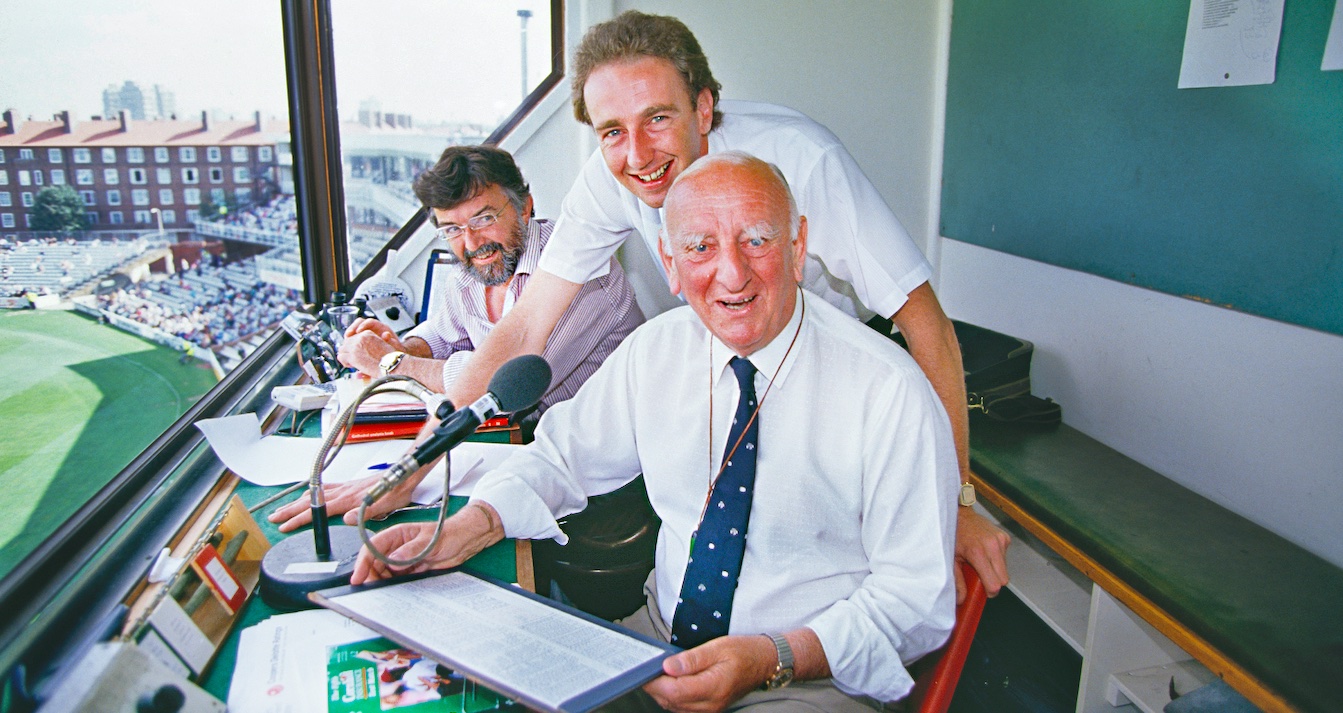“Aggers, for goodness’ sake, stop it!”
Last Monday marked exactly thirty years since the “legover” incident, one of the best-loved moments in English sports commentary. Brian Johnston and Jonathan Agnew, summarising a day’s play in a 1991 Test Match, were nearly incapacitated by giggles after the latter had dropped a schoolboy innuendo.
It sums up the traditional image of Test Match Special, now 63 years old: light-hearted, digressive, rather old-fashioned, with more than a hint of the public school sixth-form common room. Johnston, who died in 1994 aged 81, must have been one of the last people in British public life to speak with traditional received pronunciation, precise and mellifluous, immediately redolent of the pre-war upper class from which he came.
The TMS that I grew with up in the 1990s and the early 2000s had a distinctly patrician air. The Eton and Oxford-educated Johnston commentated alongside Henry Blofeld (Eton and Cambridge) and “CMJ”, Christopher Martin-Jenkins (Marlborough and Cambridge), surely the last person in the world to refer to cricket whites as “flannels”.
These upper-class types were complemented by others, notably the plain-speaking Yorkshiremen Fred Trueman and Sir Geoffrey Boycott. For more than two decades up to 1980, TMS featured the fascinating John Arlott, a sometime police officer, published poet and accomplished autodidact who described cricket in the distinctive and beautiful accent of his native Hampshire.
By contrast, it seems that over the last decade the Test Match Special has lost something of its old magic. Sceptics will say that I’m a nostalgist: that I just miss the voices of my youth and the cosy coterie of middle-class white men. Maybe; but I honestly think that there has been a distinct change in the mood and atmosphere.
The glory of TMS was always the fruitful interplay of two different types. On the one hand, men who — while they may have played the game, at amateur or even professional level — were above all wordsmiths and cultural observers, with a keen sense of the game’s history, and of its place in the broader life of England. On the other, there were the ex-pros, less eloquent and romantic, but bringing well-informed, trenchant analysis, entertainingly expressed.
This dynamic has broken down considerably. Several deaths, including “CMJ” and Bill Frindall, as well as retirements — both voluntary and the perhaps-not-quite-so-voluntary — have removed the old guard. TMS commentary is now heavily dominated by ex-pros, who are good fun in their way but lack the breadth of perspective and reference that was noticeable in earlier generations.
Similarly, their journalistic counterparts are often generic sports reporters, rather than cricket specialists, and seem to lack any kind of poetic or dramatic sensibility. The old TMS hands were distinct personalities. They had lived remarkable lives and as a result had interesting things to say. Trueman worked at a colliery, and both he and Boycott started their playing days at a time when professional cricketers were only modestly paid and expected to find other work in of the off-season.
Why has this blandness taken hold? There are a few trends in play: the general flattening out of local accents and traditions; the decay of a distinct English identity and the accompanying loss of historical memory; an increasingly conformist and cautious broadcasting environment, with less room for eccentrics and characters. Nowadays, the most beautifully spoken and thoughtful voices on TMS belong not to the English but to the guest summarisers from abroad.











Join the discussion
Join like minded readers that support our journalism by becoming a paid subscriber
To join the discussion in the comments, become a paid subscriber.
Join like minded readers that support our journalism, read unlimited articles and enjoy other subscriber-only benefits.
Subscribe